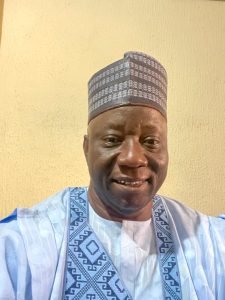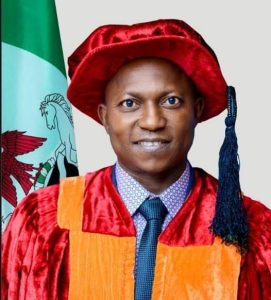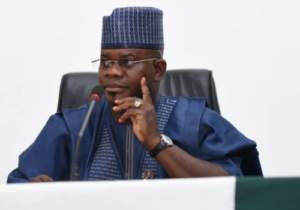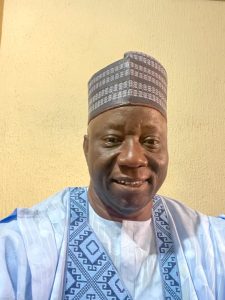Yahaya Bello’s Uncommon Women Inclusiveness In Leadership
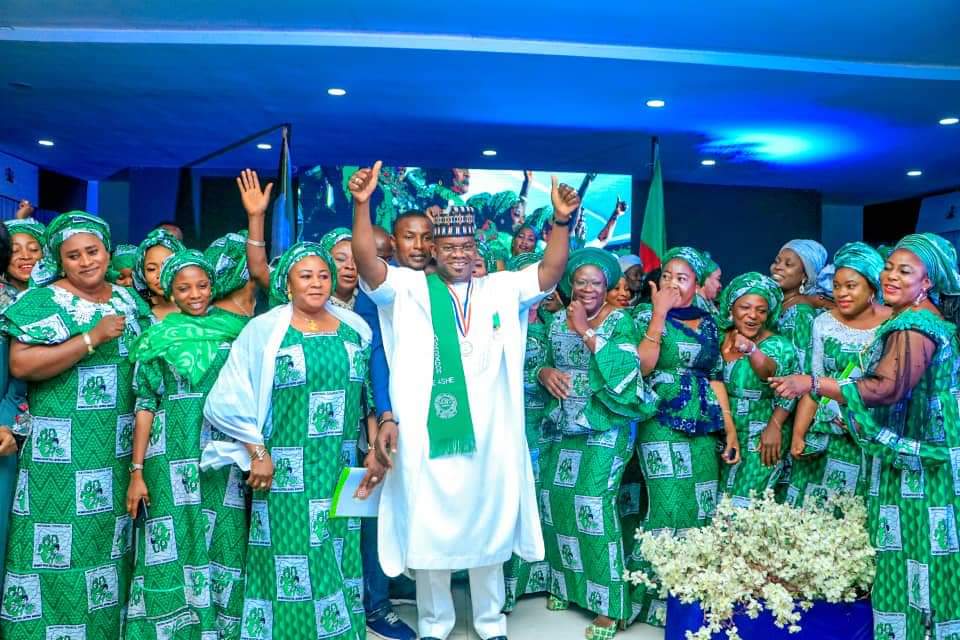
Even though the United Nations has stated that women’s equal participation and leadership in political and public life are essential to achieving the Sustainable Development Goals by 2030, there is no doubt that achieving gender parity in political life is a long way off, especially in Africa.
Data from around the world show that women are underrepresented at all levels of decision-making, in contrast to the Beijing Declaration and Platform for Action, which set an internationally agreed target of equal political participation and power-sharing between men and women in decision-making.
While only a few countries have set or met ambitious targets for gender parity, many others, including Nigeria, have failed to achieve gender balance.
According to UN Women data, 26 women are serving as Heads of State and/or Government in 24 countries as of September 1, 2021. And, at the current rate, gender equality in the highest positions of power will not be achieved for another 130 years, according to the UN. What a dreadful situation!
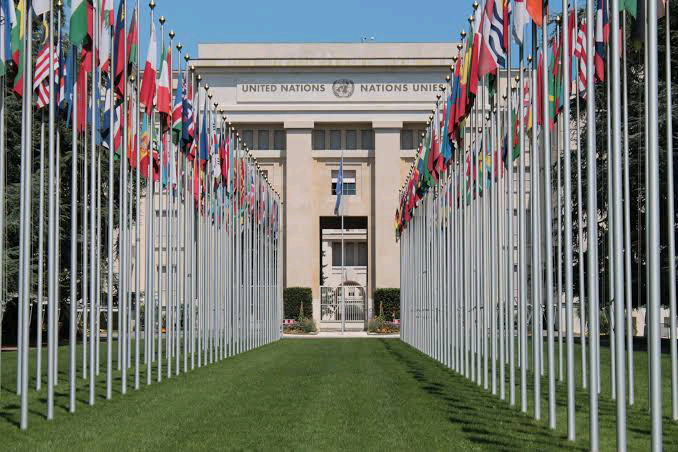
While approximately 13 countries are said to have a female head of government, only 10 countries have a female head of state, and only 21% of government ministers are female, with only 14 countries having 50% or more women in cabinet.
Family/children/youth/elderly/disabled are the five most common portfolios held by women ministers, followed by Social affairs, Environment/natural resources/energy, Employment/labor/vocational training, and Women affairs/gender equality.
Women’s political participation is a challenge that faces the entire world, particularly Africa. While everyone waits to see if nature can change men’s attitudes toward women and the popular belief that women are weaker vessels, a young man has begun to change the world by giving women the opportunity to showcase their potential. Alhaji Yahaya Bello, the governor of Kogi State is the man in question.
Governor Bello is the Nigerian leader who has given women the greatest share of power in governance in the country’s history. This aspect of the governor’s leadership reverberates far beyond the borders of our country. Perhaps my memory isn’t doing me justice. I can’t recall a time in our country’s history when a state had 63 female councillors across all local governments, as there are in Kogi’s 21 Local Government Areas, as well as 21 female local government council leaders, Local Government Vice-Chairmen, a Female SSG, a Female Head of Service, and even a female Aide-De-Camp.
Yahaya Bello has long been a proponent of gender equality, and he has made Kogi a model state in this regard. Consider how quickly women’s self-esteem and political participation could improve if such an arrangement were replicated at the national level.
Bello has received several national and international women’s groups’ awards, including the Hero of Women Inclusiveness Award, for exceeding the United Nations’ 35 percent affirmative action target by appointing women to strategic positions in his government. It might also be of interest to you to know that in Kogi, higher education institutions have student unions led by young, vibrant women. Only during Bello’s tenure a lady was able to emerge as the President of the Student Union Government at Prince Audu Abubakar University. Miss Abubakar Fatimah Zahra made history in July 2021 when she was declared the winner of the students’ election, which had previously been won by men.
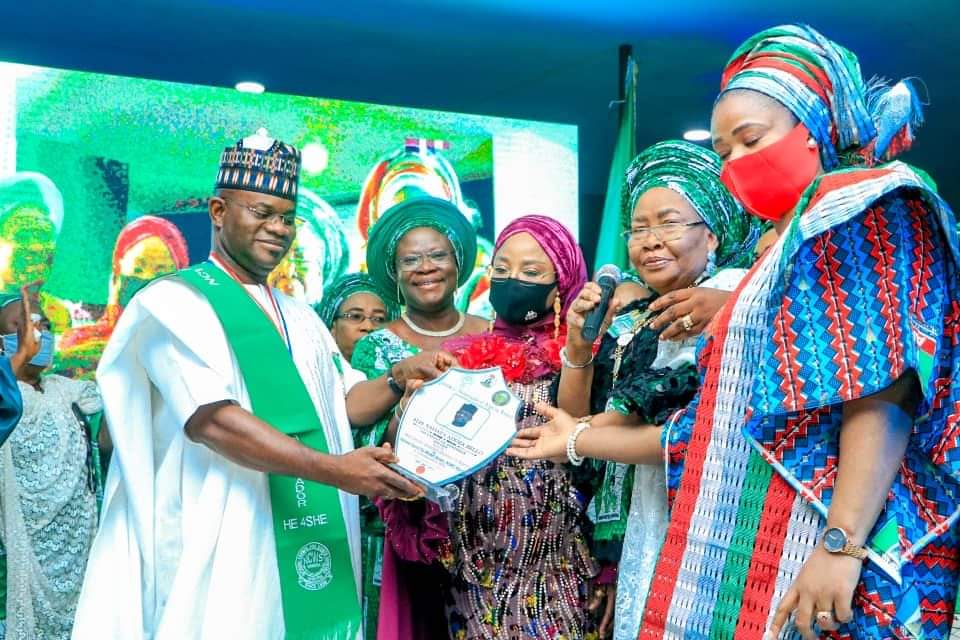
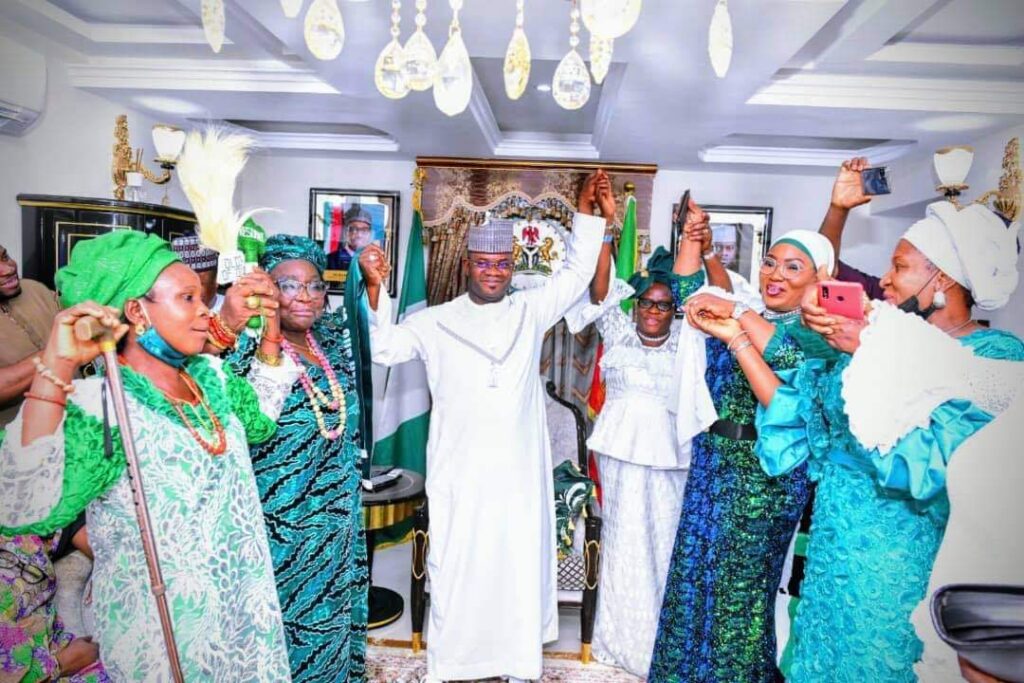
Bello was named a ‘Distinguished Hero of Women Inclusion’ last year.
The governor received the award at the grand finale of the Nigerian Women Arise For Nigeria (NIWAFON) awareness campaign in Abuja, according to the News Agency of Nigeria (NAN). This is just one of several awards the governor has received for going above and beyond for our women.
Beyond our borders, I recall what the Vice President of the Republic of Liberia, Dr. Jewel Taylor, said about the Kogi state governor’s unusual leadership style.
Dr. Taylor stated at a dinner hosted by female appointees of Governor Bello’s cabinet prior to attending the All Progressives Congress (APC) National Women Progressive Congress that the governor has set a remarkable example that has become a reference point in defining inclusiveness in governance, adding that he is doing what women and young people want. She went on to say that Governor Bello’s leadership performance should serve as a model for African nations.
Without a doubt, Bello is setting a high standard for world leaders. Gender is no longer an issue, but rather an agenda in today’s world.
We have reached the age of equal access to resources and opportunities, including economic participation and decision-making, regardless of gender; and the state of equally valuing different behaviors, aspirations, and needs, regardless of gender. Africa is changing, and Bello has emerged as a leader in gender equality.
Every day, girls and boys face gender inequality in their homes and communities, according to UNICEF. This is due to the manner in which the foundation, particularly in Africa, was laid. We depict discrimination in textbooks, the media, and among the adults who care for them, both intentionally and unintentionally.
We may assume unequal responsibility for household work in our homes, with mothers bearing the brunt of caregiving and chores. This is, after all, a long-standing tradition. Consider our communities: the majority of low-skilled and underpaid community health workers who work with children are also women, denying them the opportunity to grow. Certain advancement schemes may exclude their categories.
Even in our schools, boys are given more opportunities than girls to study whatever they want. And, as UNICEF correctly points out, this occurs for a variety of reasons: Girls’ safety, hygiene, and sanitation needs may be overlooked, preventing them from attending class on a regular basis. Gender disparities in learning and skill development are also caused by discriminatory teaching practices and educational materials. As a result, according to UNICEF’s report, nearly one in every four girls between the ages of 15 and 19 are neither employed nor in education or training, compared to one in every ten boys.
Gender equality is a fundamental human right, in addition to being a key component of the Sustainable Development Goals. Unfortunately, women and girls around the world do not fully enjoy equal rights because our society was designed from the start to favor men.
Long-term, sustainable development, as the saying goes, will be possible only when men and women have equal opportunities to realize their full potential.
Bello is here to reshape the world for our generation. He has named a woman as his Director General for his Presidential Campaign – first ever in the history of our country.
Maybe a rescuer of this generation, I don’t know how else to label the young governor, but whichever way you look at it, Yahaya Bello is rewriting the narrative of women in governance across the world.
Onoja Johnson Baba writes from Abuja, Nigeria

